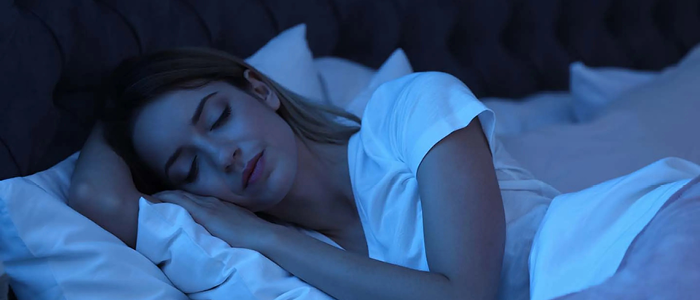How much deep sleep do you need?
Deep Sleep: An Important Medicine
Sleep is as essential to humans as eating and drinking. A good night's rest allows for physical and mental recovery from daily life. It reduces the risk of illness, makes you more emotionally stable, and gives you the energy for the next day.
Sleep may seem like a monotonous activity, but it is a finely-tuned process made up of several phases. One of these is deep sleep. This is the stage where the body relaxes and restores itself.

What happens during deep sleep?
Deep sleep is also known as delta sleep or slow-wave sleep. During deep sleep, slow brain waves occur in your brain, forming a delta pattern.
Deep sleep is crucial because these slow brain waves cause your muscles to completely relax. Your breathing slows, your heart rate decreases, more blood flows to your muscles, your blood pressure drops, and your pituitary gland releases human growth hormone.
Due to this very relaxed state of both body and brain, various processes occur that promote recovery, growth, and energy. During this phase, you sleep so deeply that waking up is difficult. If you are awakened from deep sleep, you will likely feel disoriented.
Sleep stages of a healthy night's rest
Deep sleep is one of the four stages that occur during sleep. The first is the drowsiness phase. In this stage, your brain activity slows down, you feel sleepy, and eventually, you fall asleep.
Once you’re asleep, you don’t immediately enter deep sleep. You first fall into light sleep, during which you can still wake up easily from a sound. Afterward, deep sleep begins.
Next, you enter the phase most associated with sleep—the dreaming phase. Up until this point, your brain was calm, but now it becomes active. This is the phase when your brain processes mental experiences and emotions from the past, which is why you dream. This phase is called REM sleep (Rapid Eye Movement), as your eyes may move quickly during dreams.
The sleep cycle
The different sleep stages repeat several times throughout the night. In essence, you go through multiple sleep cycles. During a good night's sleep, you experience four or five of these cycles.
Each sleep cycle lasts about an hour and a half to two hours, which is why eight hours of sleep is generally considered a good night’s rest.
Between cycles, you briefly wake up. If you don’t need to use the bathroom and nothing else is wrong, you fall back asleep and don’t even notice you woke up.
However, if you wake up due to discomfort, you may need to adjust your position, fluff your pillows, or get up to use the restroom. A sound can also wake you more easily between sleep cycles.
How much deep sleep do you need?
While the average person sleeps for about eight hours, the actual amount of sleep needed varies from person to person. Age and gender play a role in determining how many hours of sleep one requires. This is true for sleep in general and specifically for deep sleep.
Babies need the most of this intensive sleep phase as they are still growing, and the growth hormone produced during deep sleep plays a vital role. Toddlers, preschoolers, and young children are still in the midst of their physiological development and benefit from plenty of deep sleep. When puberty starts, a child's sleep pattern gradually transitions to that of an adult.
Roughly, adults spend about a quarter of their sleep in deep sleep. However, the older you get, the less deep sleep you need. When you reach your twenties, your need for deep sleep decreases by about two percent every ten years, continuing until around age sixty.
After this, deep sleep continues to decrease. Once you are over seventy, deep sleep makes up only a small portion of your sleep cycle. For women, deep sleep comprises about fifteen percent of their sleep; for men, it can drop to as little as five percent.
How to improve your deep sleep
Poor sleep has a negative impact on your well-being because you don’t fully rest and recover. There are several ways to prevent a lack of deep sleep.
For example, avoid eating too late or too heavily in the evening. It’s better not to eat a few hours before bed. Also, avoid alcohol or caffeinated drinks before sleep to prevent your body from being disturbed by digestion or stimulating substances.
Another tip for better sleep is darkness. When it’s dark, the sleep hormone melatonin increases. So, use blackout curtains to block out any light from street lamps outside your bedroom.
Finally, a good night’s sleep starts with proper support for your body. This means that optimal deep sleep begins with a good bed and mattress!
